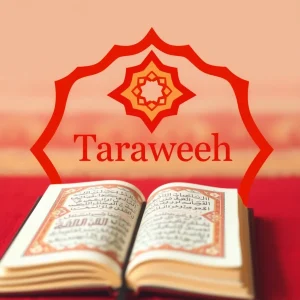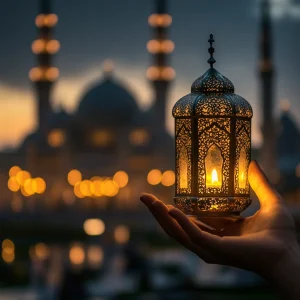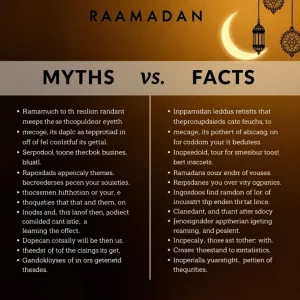The Meaning of Zakat and Its Importance During Ramadan
The Meaning of Zakat and Its Importance During Ramadan As Muslims across the planet celebrate Ramadan through fasting and prayers while reflecting on their lives, they renew their spiritual connection and maintain moral responsibility. This holy month focuses intensely on the Islamic practice of Zakat, which stands as the third pillar of Islam. People perform almsgiving and charity in the form of Zakat, which serves Ramadan with remarkable spiritual power to cleanse their wealth and create social equality and social unity among community members.
This article examines the essential Islamic financial duty of Zakat together with its position within Islam while exploring its elevated importance during Ramadan.
What is Zakat?

Every Muslim with surplus wealth is required to pay Zakat each year because it represents 2.5% of their total savings. Through faith-based duties, Zakat stands separately from Sadaqah since Islam makes it essential for wealth distribution among needy people.
The Arabic word “Zakat” derives its meaning from two elements indicating that wealth payment functions to cleanse assets and produce blessings. Zakat collections must be spent by believers according to Quranic guidelines on the following recipient groups:
The poor (al-fuqara)
The needy (al-masakin)
Those in debt
Travelers in distress
People who collect and share Zakat money for good reasons.
New Muslim converts seeking support have a specific need for assistance.
Muslims who defend the cause of Allah’s purpose show their dedication.
Religious obligation meets social responsibility through Zakat payments because they work to distribute wealth to reduce socioeconomic gaps in Muslim communities.
The Spiritual Meaning of Zakat
Through Zakat, Muslims perform a transaction that functions as a religious act of worship beyond its financial aspect. Through Zakat a Muslim demonstrates three essential principles: obedience to divine orders and understanding that wealth belongs to God. Through Zakat charity, Muslims build both a heart of humility and empathy toward one another while developing deep gratitude for their obligation to care for those with less.
Throughout Ramadan, Muslim believers endure daily fasting periods from sunrise until sunset so they can understand what poor individuals experience in terms of hunger deprivation. Empathy acquired through these experiences allows believers to understand better the difficulties faced by others, leading them to provide Zakat with greater significance. The practice cleanses the spiritual nature through controlling the desire for excess material things together with self-serving tendencies while nurturing membership-regarding accountability.
The Importance of Zakat During Ramadan

The payment of Zakat occurs at any season, yet Muslims commonly donate it during Ramadan due to multiple religious incentives.
a. Enhanced Spiritual Rewards
During Ramadan, Muslims believe that any good actions performed bring tremendous multiplier effects during this holiest Islamic month. Muslim believers should intensify their spiritual practices, which include daily prayer followed by Quran recitation alongside charitable actions. People view Zakat donations during Ramadan as a time to earn the greatest spiritual benefits.
b. Purifying the Soul Alongside Fasting
The soul and wealth benefit from purification through Zakat just like fasting creates discipline as it cleanses the body. These fundamental Islamic elements form a complete strategy to cleanse the spirit through their united efforts. By fasting, people learn self-restraint and appreciation, and they learn through Zakat to distribute their wealth with needy individuals.
c. The religious act of Zakat fulfills community needs.
The mandatory religious donation during Ramadan called Zakat makes sure that everyone, including the poor, can participate in Eid al-Fitr festivities, which celebrate the conclusion of Ramadan. Through Zakat distributions during this period, Muslims support the provision of essential supplies and necessary items for those who need these requirements so all members of the community feel included.
d. Zakat helps Muslims get closer to their faith and brings them together.
When Muslims perform Zakat, they maintain awareness about their total dependence on God while recognizing their bonded relationship with other human beings. Zakat generates a sense of unification as well as mutual compassion and supportive bonds among Muslim community members who understand wealth’s purpose as benefiting everyone.
The Difference Between Zakat and Sadaqah

There exists a common misconception about Zakat because many people mix it up with Sadaqah, although these charitable practices remain distinct from each other.
Zakat functions as an obligatory charitable obligation that requires particular income qualification and quantity requirements.
Offerings of Sadaqah serve as voluntary charity donations, which can happen any time with any monetary level.
Zakat remains mandatory based on eligibility, but Muslims should foster Sadaqah as sustainable voluntary charity throughout their lives. Both forms of charity receive special emphasis during Ramadan because Muslims receive encouragement to offer substantial support to needy community members.
FAQs About Zakat and Ramadan
Conclusion
Zakat represents a fundamental Islamic responsibility that serves as the main religious and social essence of Ramadan. Muslims honor both divine expectations and establish economic fairness through Zakat by providing assistance to disadvantaged people in the community. This religious act acquires additional meaning during Ramadan because it expresses essential principles such as empathy and thanks to others as well as self-denial that Ramadan aims to develop in people.
People should understand Zakat’s transformative power during Ramadan, which produces both a spiritual and economic impact on society. Your generosity creates purification of wealth combined with spiritual nourishment that benefits your community as a whole.







